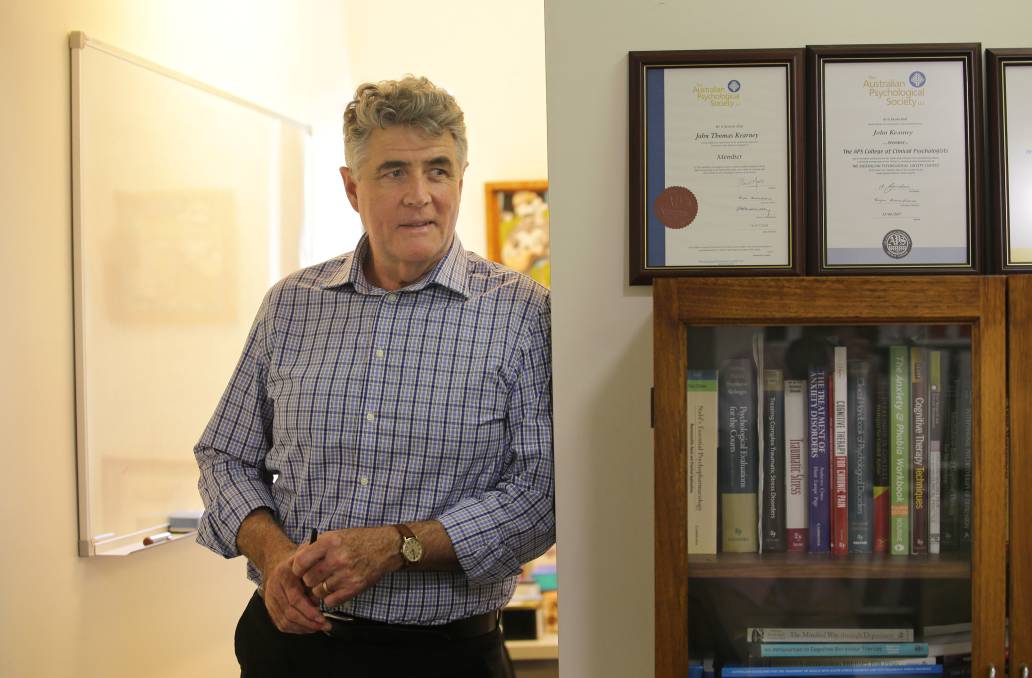Psychologist’s 8 tactics to build resilience in the workplace
- Written by Sophie Harrison

A clinical psychologist from Wesley Hospital has identified low resilience as a major factor impacting the mental and physical wellbeing of employees. He is calling for more awareness around the need to build personal resilience, starting with Wesley Mission’s resilience training, which is launching to the general public in a full-day workshop on 26 March.
Resilience – the ability to bounce back in the face of challenges – is crucial to combating stress, which recent studies have revealed as the most significant psychological hazard in the workplace.[1]
Dr John Kearney, Director of Psychological Services at Wesley Hospital in Kogarah, said he has seen an increase in the number of people feeling overwhelmed by workplace stress, taking time off as a result.
“In our connected, always-on age, it is increasingly difficult to separate work and personal life. There is often a reluctance to share feelings of stress or not being able to cope in the workplace, because of the stigma attached,” Dr Kearney said.
“While moderate stress can be a productive and motivating factor in the workplace, too much of it can risk burnout. This can have serious consequences, such as reduced productivity and performance, emotional exhaustion, a loss of empathy and increased absenteeism.” In the workshop, they also tell the importance of the manual handling training program as it helps you to cope up with the injury trauma by offering you injury counseling and Psychological injury management.
With chronic forms of workplace stress shown to increase a person’s risk of developing severe mental health conditions, such as depression,[2] Dr Kearney recommends self-care strategies to build resilience. “Focusing on your own self-care, such as minimising or eliminating alcohol and caffeine intake, and taking time away from work to build good relationships with family and friends, is crucial to building personal resilience. In turn, these strategies can improve morale, develop mental agility, and encourage employees to ask for help before they feel they need to take time off.”
Wesley Mission’s Mental Health and Resilience in the Workplace program is a unique training program designed by specialists to foster open communication and enhance resilience. Dr John Kearney reveals eight key take-outs of the workshop.
- Create weekly ‘rituals’ that refresh your mind and body. Try to minimise mindless distractions and engage in activities that help you stay connected, such as watching the footy with friends, joining a book club or meeting with friends every week for breakfast. Volunteering your time to others is another way to help you feel a sense of purpose.
- Set realistic goals that play to your mental strength. It is important to set work goals that are measureable and achievable, as this promotes a sense of purpose and agency. Goal setting should also be motivating, so you may need to devise ‘mini goals’ to break the overall work goal into smaller, achievable tasks.
- Take breaks throughout the day. It may feel counterintuitive, but stepping away from your desk for 30 minutes each day could help you get more done. Short breaks enable your mind to reset and can do wonders to your focus.
- Stay healthy outside work. Research has shown that people who exercise regularly have better mental health and emotional wellbeing. As well as relaxing your mind, physical activity can improve your sense of control, coping ability and self-esteem. Activities such as yoga, meditation or Tai Chai provide a healthy outlet for managing your stress.
- Don’t use social media to benchmark your life. A reliance on technology to ‘see’ the social world around us can be a heavy burden, promoting a particular way of being connected to the world that is not real. Switching off from frenetic social networking – even if it means spending some more time in your own company – is not missing out. These moments can be crucial for helping us to reset and relax.
- Get 7-9 hours’ sleep. It is proven that those who sleep within the recommended seven-to-nine hours per night have greater energy and concentration at work the next day. If you’re having difficulty switching off, practice mindfulness or meditation to help improve your sleep.
- Confide in a trusted manager or work colleague. If you think that you’re experiencing burnout and chronic stress at work, reaching out to your manager or a fellow employee can make you feel less alone. It is well known that maintaining social connections helps people feel better, so speak to your partner, a friend or family member about how you’ve been feeling.
- Don’t run away from challenges, look to grow through them. Fulfilling careers are built on experiences, good and bad. Experience is gained from taking risks and making mistakes, so do not view these challenges negatively.
To find out more about Wesley Mission’s Mental Health and Resilience in the Workplace program, go to https://www.eventbrite.com.au/e/mental-health-and-resilience-in-the-workplace-sydney-nsw-tickets-55310196286 or email Wesley LifeForce on resilience@wesleymission.org.au.
[1] Safe Work Australia, ‘Workplace mental health’ (Last modified on Wednesday 6 Feb 2019): https://www.safeworkaustralia.
[2] Informed Health Online. Cologne, Germany: Institute for Quality and Efficiency in Health Care (IQWiG); 2006-. ‘Depression: What is burnout?’ 5 Dec 2012. Available from: https://www.ncbi.nlm.nih.gov/







